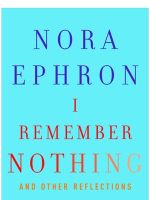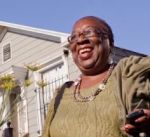 ‘The most serious social policy issue in decades,’ is how the Centre for Social Justice (CSJ) describes the ageing population and, in particular, its need for social care. Yet there’s quite astonishing apathy when it comes to planning for what’s about to hit us – the 1.7 million more people who will need social care over the next 20 years and projected doubling of those with dementia in the next 30 years.
‘The most serious social policy issue in decades,’ is how the Centre for Social Justice (CSJ) describes the ageing population and, in particular, its need for social care. Yet there’s quite astonishing apathy when it comes to planning for what’s about to hit us – the 1.7 million more people who will need social care over the next 20 years and projected doubling of those with dementia in the next 30 years.
The CSJ, a think tank founded by Iain Duncan Smith, highlights this paradox in its Interim Review of Older Age, a 250-page assessment of the state we’re in. Recommendations will follow in a final report due out next year.
Why aren’t we better prepared? Is it that nobody wants to think about ageing? That we can’t imagine it will happen to us? Is it the fault of the financial services industry, for not coming up with insurance products? Should governments have worked harder to resolve the tangled relationship between healthcare (free) and social care (means tested)?
The fact is that the soaring demand will come at a time of spending cuts and falling numbers of unpaid carers. The Centre for Social Justice attributes the latter largely to family breakdown, which is certainly a factor although there is also a more general atomisation, a feeling that individuals’ duties are first to themselves and their careers. Old people and our kind of capitalism don’t go very well together, unless the old people happen to have done extremely well financially earlier in life.
In a recent poll for ippr, the Institute of Public Policy Research, 45% of those asked said they would prefer professionals to provide care while a majority felt they should not be compelled to pay for care of their relatives. Many people believe social care is, or should be, the responsibility of the state. Unfortunately for them, the state is much less convinced. (The government’s recent Vision For Social Care talks a great deal about individuals, community groups and the Big Society.)
The scale of the problem is terrifying, the lack of preparedness more terrifying still. And every single discussion about it concerns money. We might find it easier to think about the issues if we looked down the other end of the telescope, if we started by asking: What would good social care look like? How might it genuinely involve both the social, and caring? Then maybe people would find care less horrible and overwhelming to think about, and we could begin to have a sensible debate.









 People of 80 or 90 plus who are eking out their lives in nursing homes with very poor quality of life are, according to New York geriatrician Mark Lachs, an indictment of society’s priorities. ‘I would argue,’ he writes, ‘that the “life extension” these people have experienced – a good deal of it the result of technology – is as big a failure of medicine as any 40 year-old dying of breast cancer or 50 year-old perishing of a heart attack.’
People of 80 or 90 plus who are eking out their lives in nursing homes with very poor quality of life are, according to New York geriatrician Mark Lachs, an indictment of society’s priorities. ‘I would argue,’ he writes, ‘that the “life extension” these people have experienced – a good deal of it the result of technology – is as big a failure of medicine as any 40 year-old dying of breast cancer or 50 year-old perishing of a heart attack.’